I have always known I wanted to lead the family Seder when I grew up. My father took the reins of this sacred ritual from my maternal grandfather, and I have always found power in its symbolism and storytelling. Each year, I find new wisdom in the timeless themes of the Passover story, and as an experiential educator, I love that intergenerational lessons are so deeply baked into this holiday’s DNA.
But this Passover was certainly different from all others. Because of social distancing due to the COVID-19 pandemic, my family was dispersed across Florida, Colorado, Baltimore, and Washington DC, and (like many others) gathered over Zoom to conduct our Seder. With all the upending of tradition, I was definitely not expecting this (of all Passovers) to be the year when I finally took the leap to lead my first Seder.
Night 1: I was surprised by how powerful our Zoom Seder was.
First, I spent the day preparing. My teachers in Jewish day school always spoke of preparing the house for Shabbat or a holiday, but I had never before spent a full day cooking in the kitchen and rummaging in the house for Sacred Judaic objects. My mom, my aunt Selma, my cousin Martha…they had been the hosts in all my previous Seders, and I was just a childish participant. However, as the only Jewish member of my quarantine pod–I’m social distancing with my husband and his brother–if Passover was going to happen, I was going to have to make it. I embraced the challenge to make the charoset and the matzoh ball soup, to buy the matzoh and the Manischewitz in advance, to set the table and prepare the Seder plate. I loved the investment of the set-up, and the day passed in a flurry of preparation.
Despite the distance, my father also invited each family pod to contribute to our virtual Seder: my two year-old niece in DC nailed the four questions, the 9 year-old and 5 year-old in Denver shared their experience tracing a family member’s Holocaust survival path in Europe earlier this year, and I performed with the new skill I developed during my unemployment in quarantine: guitar! (Luckily, the first song I learned was “Wide Open Spaces” by the Dixie Chicks, which carries a lot of thematic connections to both Passover and social distancing.)
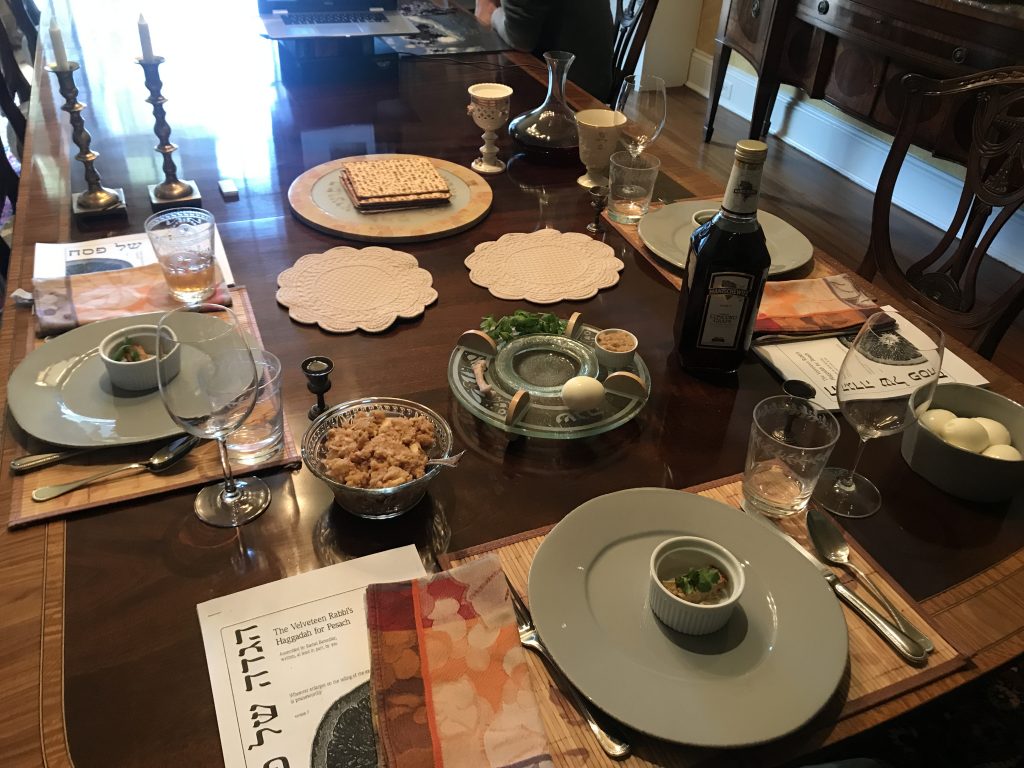
After a range of successes and failures on Zoom earlier in quarantine, I was surprised how much my family showed up for Seder. From my 92 year-old grandma to my 2 year-old niece, everyone was attentive to their screens, the technological conduit to the family and familiar traditions we are yearning for in this uncertain, isolating time. The gathering made my aunt, who is social distancing alone in her apartment, a little less alone for the evening. I teared up as I heard my grandmother read excerpts from the story, and laughed as we attempted to sing “Dayenu” and “Chad Gadya” in unison (the least successful endeavor of the Zoom Seder). In all our different homes, we opened our doors wide for Elijah, momentarily forgetting the ban on hospitality and feeding our yearning to embrace each other.
After such a success on night one, I figured, why not give leading my own Seder a shot?!
Night 2: If not me, who? If not now, when?
I invited my non-Jewish in-laws to a Zoom Seder, their first Seder ever, and began a process of hodge-podging my own combination of rituals and symbols:
- An orange for the marginalization of the LGBT community
- A tomato for farm workers (a form of present-day bondage)
- Sunflower seeds to represent those spouses and children forced to quarantine in abusive homes
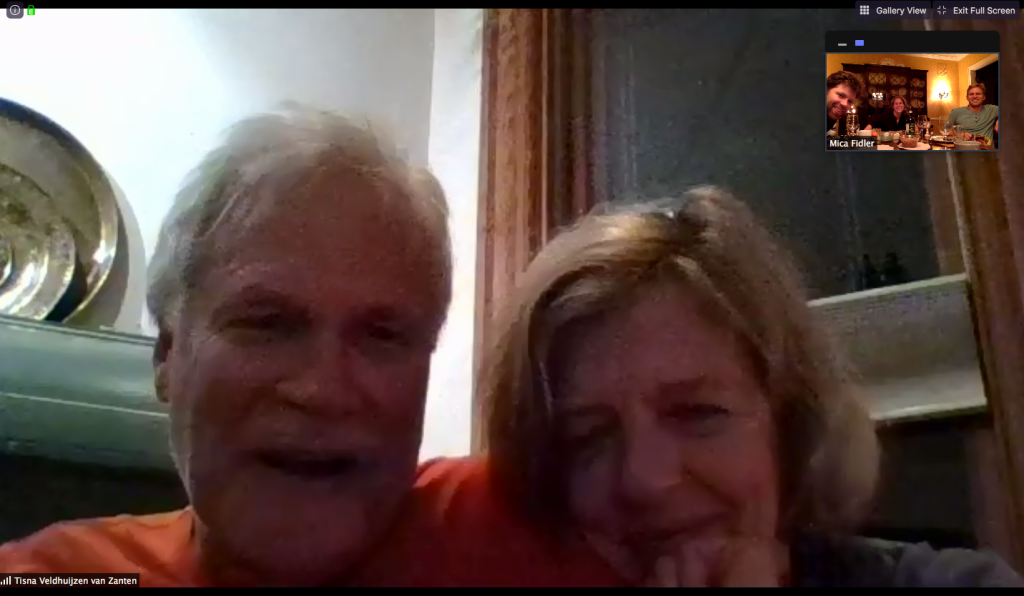
To Jews, the Seder is a familiar story with timeless lessons, so I incorporated stories of liberation familiar to my married family. I wove in the tale of Harriet Tubman (a fellow Marylander) and a quote by Viktor Fankl on emerging from confinement. Since my in-laws spent much of their lives working in Africa, I included a scholarly explanation of how the symbol of Miriam’s biblical drum of liberation migrated from Africa to American slavery to modern music of oppression in the African American community. Everyone shared their paradoxical experiences of both confinement and liberation in this unsettling, unfamiliar time.
Maybe it was the story of liberation resonating in new ways with new audiences, maybe it was feeling the warmth of family across vast physical distance, and maybe it was the fulfillment I felt in taking the reins of a childhood ritual…but leading my first Seder made me feel like a grown up in my Judaism. Despite all the anxiety of this pandemic, I’m grateful that my Zoom Seders gave me what I so needed in this time, and what the Passover holiday is intended to foster: connection, reflection, and most of all, hope.
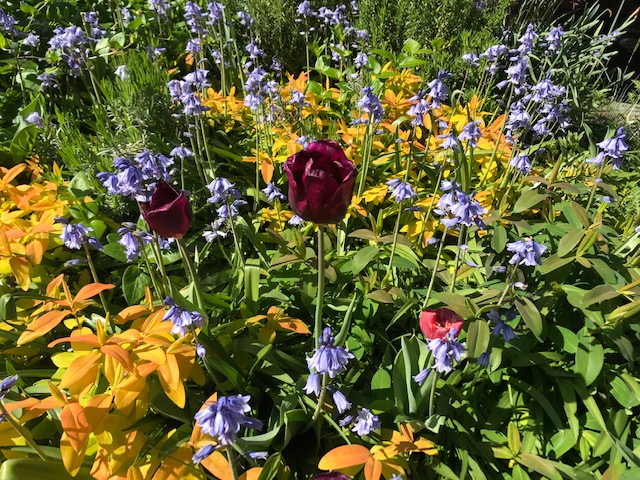
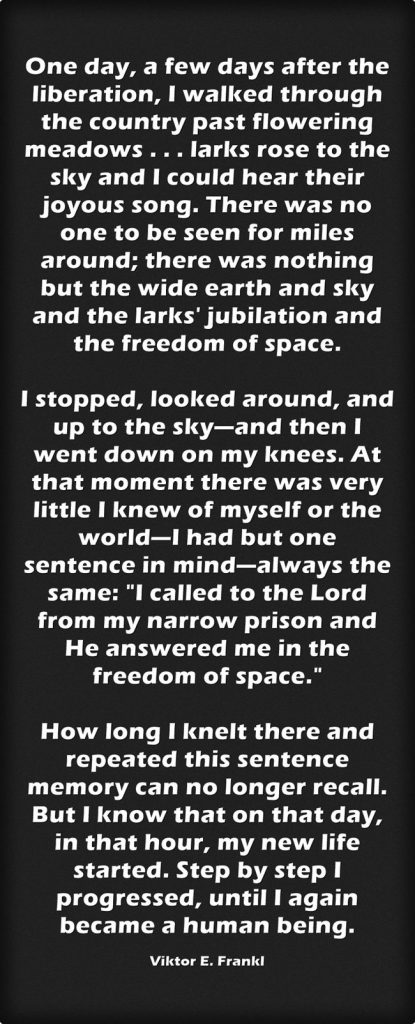

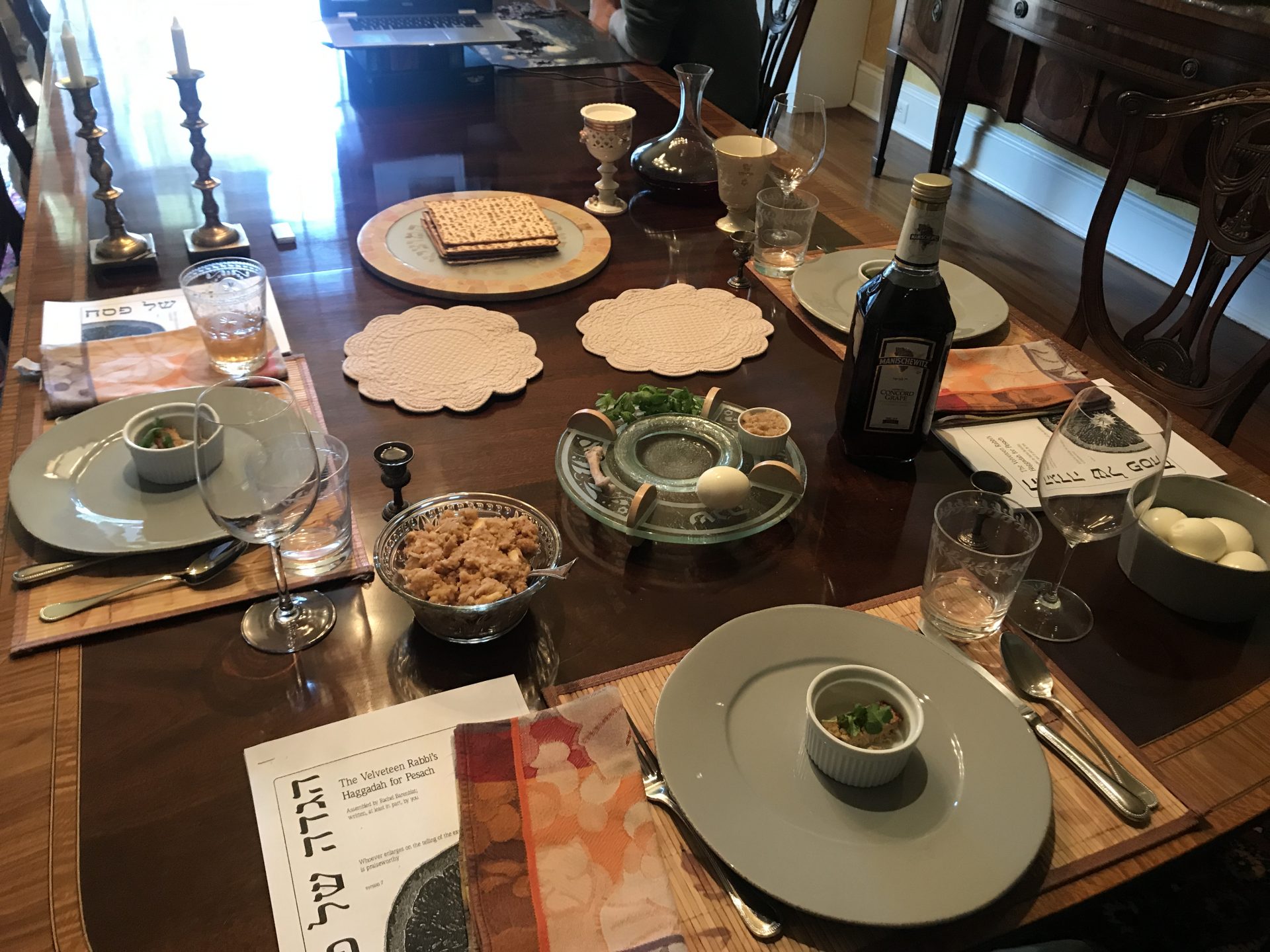


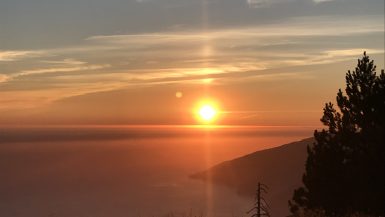
Leave a reply